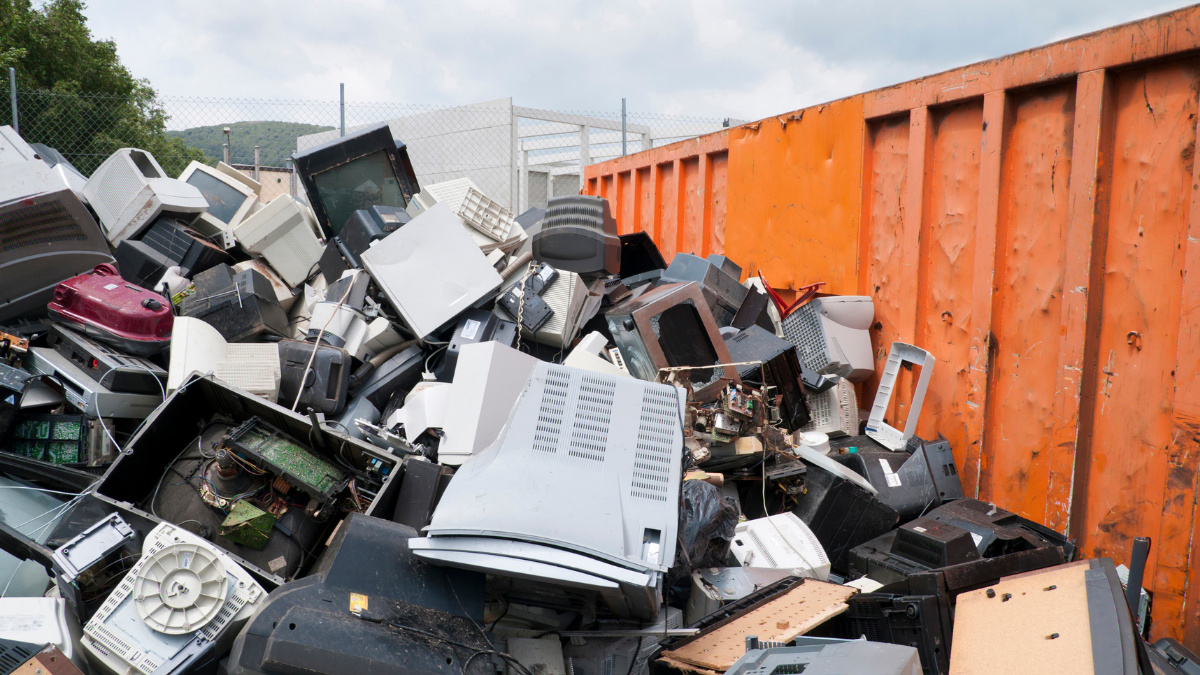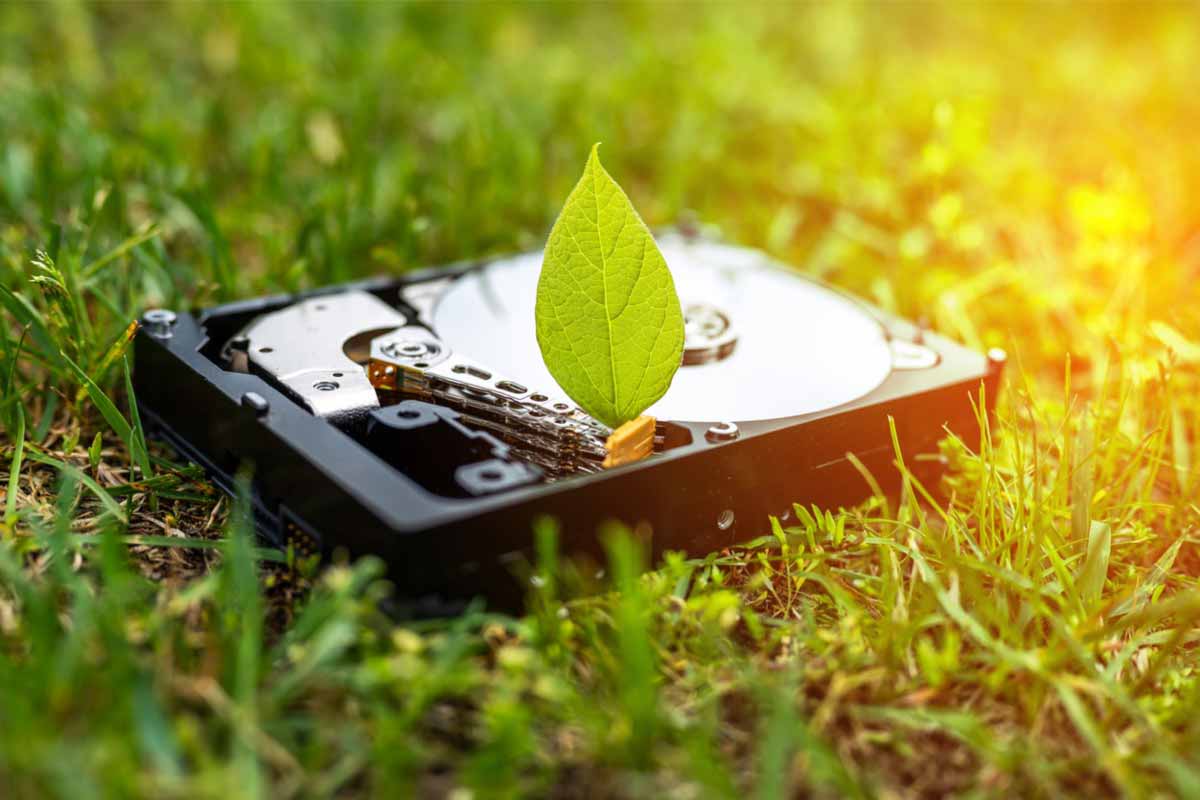Can You Throw Computers and Electronics in the Trash?
Can You Throw Computers and Electronics in the Trash?
People today are more aware of protecting the environment than previous generations. Instead of assuming anything can go out with the trash, they ask sensible questions like:
- “Can you throw a computer in the trash?”
- “Is it illegal to throw away computers?”
- “What should I do with my old mobile phone?”
- “Can you throw away electronics?”
Putting electronics into landfills is not good practice, and now with stricter environmental legislation in place can break the law. It’s much better for the environment if unwanted electronics and computers are professionally recycled. It’s also safer for the protection and security of your personal data.
It’s tempting to put small electronic items like phones into the trash. It’s relatively easy to dispose of bigger items like TV and CRT monitors in the trash. In the past, recycling centres would let you put larger electronics and computers etc., into their landfill. Nowadays, even though it’s not illegal, most recycling centres insist that you separate out all electronic equipment so it can be sorted and recycled.
Your local trash collectors might be happy to take large items away for you with the rest of the garbage. But can you throw electronics in the trash in this way with a guarantee that it won’t end up in a landfill and that any data stored in the device won’t be stolen by someone else?
There is no guarantee of this. The only way you can be confident that your unwanted electronics will be securely and safely recycled is to trust them with a specialist e-recycling company like TechReset.
Throwing Computers in the Trash is Illegal in Some Places

Is it illegal to throw away computers? Can you throw away electronics? Consumers and businesses need to ask these questions about where they live and work because the answers might not be as straightforward as you think.
In some places, the list of items that should not go into landfills includes electronics.
But is it illegal to throw away computers and electronics? Yes, it is illegal in some more enlightened places, and you can be fined if you disobey the law.

Make an Informed Decision
Legislation
Most countries have introduced general legislation like the Canadian Environmental Protection Act (CEPA) to prevent pollution and protect the environment.
But over 25 states in the US have gone further, making it illegal to throw computers and other electronics out with the rest of the trash, with heavy fines being imposed for not complying with the law.
Laws can change, and the details can vary between provinces, so it is always worth asking the question, “Can you throw a computer in the trash?” before you assume it’s OK to do so.
Reasons for Banning Electrics in the Garbage
So why can’t you throw away computer terminals as garbage? The answer is simple.
Pollution
Computers and all other electronics are made up of a mix of heavy metals. These are harmful to humans, animals and the environment. When electronics are dumped into landfills or incinerated, toxins including lead, mercury, cadmium and americium are released into the air, soil and groundwater.
Once water supplies are contaminated, the poisons end up in watercourses and drinking water. The impact on humans and animals can be catastrophic:
- Cancer
- Damage to skin, lungs, liver, heart, kidneys
- Eye problems
- Memory loss
- Damaged fertility
- Brain damage
and more
These toxins also destroy ecosystems and can affect crop growth. You might have only used your computer for a couple of years, but the impact on the environment can last for hundreds if it’s not disposed of properly.

Throwing Away Valuable Materials
Another reason why it’s not a good idea to throw electronics and computers in with the trash is that they contain a lot of valuable materials that can be reclaimed by e-waste recycling, including:
- Gold
- Copper
- Silver
- Plastics
Just one ton of electronic circuit boards can contain 40 to 800 times the amount of gold and 30 to 40 times the amount of copper mined from one ton of ore.

See how much your IT equipment is worth
Electronics You Should Never Throw Away in the Trash
Here are some electronics items that should never be thrown away in the trash:
Old Televisions
Old televisions, especially those with cathode ray tubes (CRTs), contain plenty of toxic materials and a good weight of things that can be recycled. So the answer to the question “Can you throw away electronics?” is a definite no when it comes to TVs.
For example, the glass screen on an old TV contains up to eight pounds of toxic lead, plus cadmium and phosphorous. These should never be allowed into the air or the ground but can be re-used with careful recycling techniques.
Computers
Old computers also contain high quantities of toxic materials plus valuable ones that can be recycled, but there’s an extra reason why computers should not be thrown in the trash.
Many of the component parts of a computer can be used to repair other computers, extending their life. They can also be used to make new computers. That’s a win/win situation. That includes
- Hard drives
- Memory
- Keyboards
- Network cards
Recycling computers instead of putting them into the trash helps preserve our natural resources, be kind to the environment, reduce the costs of IT equipment, and offer resuse of components.
Mobile Phones
Mobile phones and tablets contain many precious metals and valuable plastics. Reclaiming and reusing these conserves valuable resources and prevents pollution.
Recycling phones also saves energy – one million recycled phones save enough to provide electricity to nearly 200 households a year.
Recycle Computers and Electronics Instead of Throwing them Away

Trusted electronic recycling and e-waste services providers like TechReset know how to maximize the returns from recycling while protecting the environment and safeguarding your data.
At TechReset, we use responsible and ethical approaches to minimize the environmental hazards of e-waste. The steps that we take include:
- Collection of surplus electronic devices from your premises
- Careful disassembly of the products, using our experience of which components can be reused or re-sold
- Separating the parts into different types
- Cleaning
- Shredding some parts them into fine particles, ensuring all data is destroyed
Unlike some other recyclers, we specialize in recycling computers and other electronic equipment. We know what can and can’t be done. Our specialists are experts in recovery, recycling, and repurposing all types of electronics.
Can I use the local Trash Recycling Company?
Disposing of unwanted electronic items is a specialist activity. As a minimum, you must ensure that all data is completely and securely erased from the devices before you dispose of them. Otherwise, you could be in breach of data protection legislation.
Tighter environmental protection laws are being introduced both federally and provincially to prevent IT equipment from ending up in landfills. Can you be sure that your local trash recycling company is doing this?
TechReset can take these headaches away from you. Our professional computer disposal IT asset disposition (ITAD) services can take the obsolete ir unused equipment off your hands, guarantee secure data destruction, and get you the best possible resale values and return on your original investment.
The impacts of putting old electronics into the trash should never be underestimated.
So, let’s revisit the questions that we started with, but this time with the correct answers:
- Can you throw a computer in the trash?” NO
- “Is it illegal to throw away computers?” YES
- “What should I do with my old mobile phone?” RECYCLE IT
- “Can you throw away electronics?” NO
If you have questions about older computer equipment disposal, hard drive shredding, computer monitor recycling or the recycling of PC or Mac parts—we have a solid know-how on the best practices in data security and recyclable technology. Contact us to discuss all of your e-waste and electronics recycling needs.

See how we can solve your hard drive destruction needs
Related Posts

Essential Data Privacy Laws – Is Your Company Protected?
Data Privacy Laws are important to your business, and they are often changing. Even though it is imperative to make sure your organization is compliant

A Definitive Guide To Recycle Your IT Assets For Cash In Canada
It is not at all recommended to throw used IT assets like monitor, CPU, printer, scanner, keyboard, and mouse in the trash no matter if

Don’t Ignore a Cash Return on Your Older IT Assets
The question we often ask at TechReset is: How can we educate companies on the money they may be leaving on the table when they